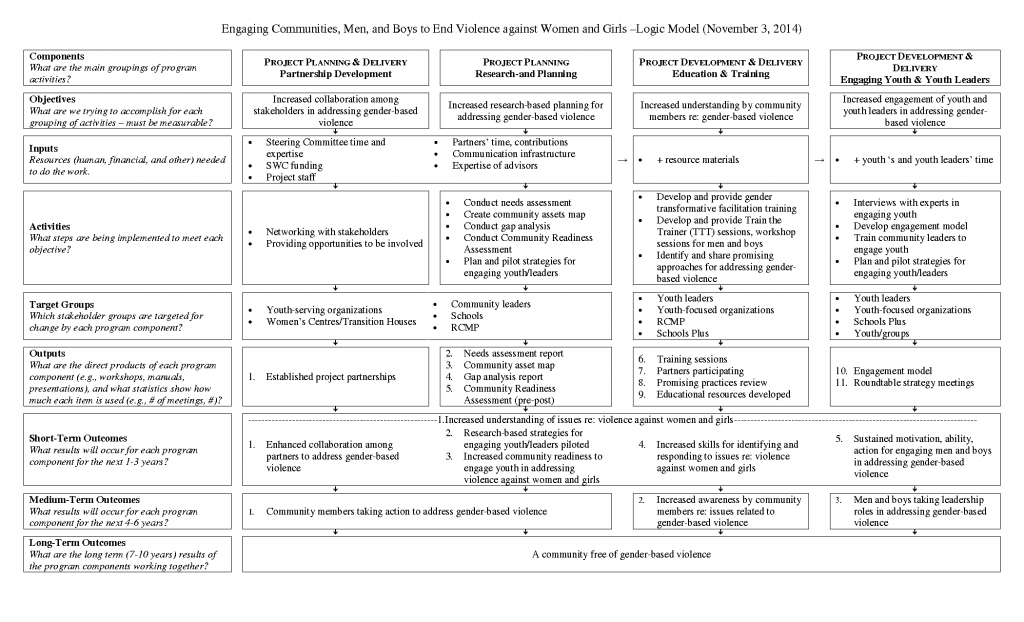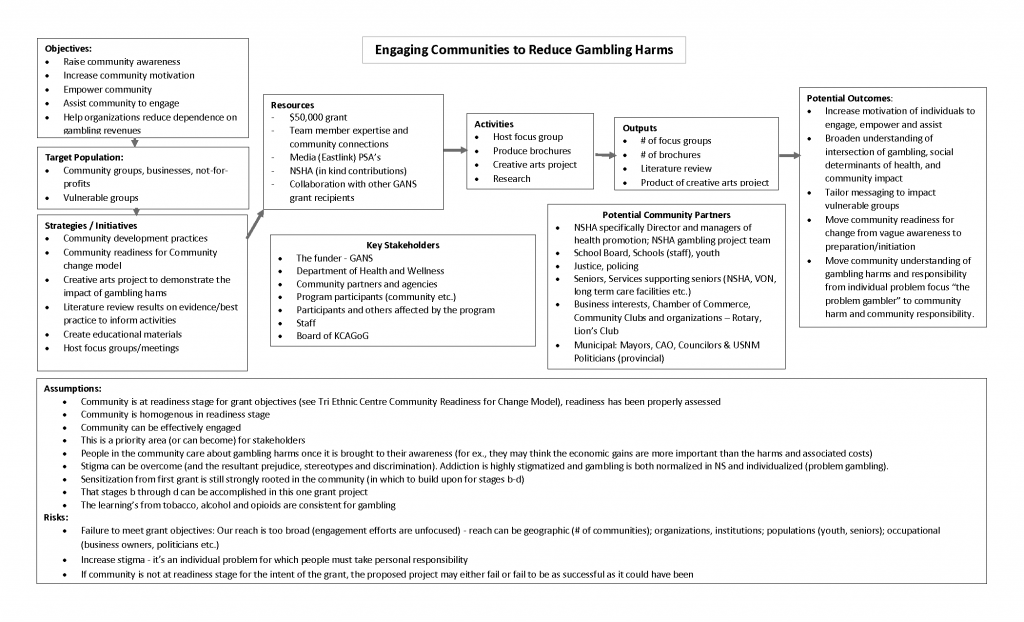Here are brief descriptions of some of the projects that I have coordinated, managed or helped design:
- Engaging Men and Boys to End Violence against Women and Girls
- Engaging Communities to Reduce Gambling Harms
- Developing Training Manual for Peer Support of Adult Survivors of Childhood Sexual Abuse
- Engaging Communities: Engaging Men and Boys to End Violence against Women and Girls (2013-15). Funded through Status of Women Canada (now Women and Gender Equality Canada).
 Chrysalis House Association, based in Kentville, and Juniper House Southwest Nova Transition House Association), based in Yarmouth, spearheaded this two-year project (2013-2015) across our catchment area, which ranged from West Hants to Shelburne counties. In addition to an extensive review of existing research and evaluations of projects from other parts of the world, we consulted extensively in Fall of 2013 with local organizations and individuals to assess both the needs and resources of our communities so that we could develop and implement activities that are truly relevant to our own local areas.
Chrysalis House Association, based in Kentville, and Juniper House Southwest Nova Transition House Association), based in Yarmouth, spearheaded this two-year project (2013-2015) across our catchment area, which ranged from West Hants to Shelburne counties. In addition to an extensive review of existing research and evaluations of projects from other parts of the world, we consulted extensively in Fall of 2013 with local organizations and individuals to assess both the needs and resources of our communities so that we could develop and implement activities that are truly relevant to our own local areas.
Bruce Dienes, Ph.D. was our project coordinator, a half-time position. Bruce has a background in Community Psychology and has extensive experience working with men on gender issues, with project management, with designing and teaching group facilitation training, with research, and with project management and project evaluation.
All of the information from the needs assessment and the assets map were combined to choose an engagement model suited to our community to address the engagement of men and boys in our community to end violence against women and girls. Horizons Community Development Associates developed an evaluation framework based on the needs assessment results and the chosen engagement model.The model chosen ensured activities and materials were inclusive and reflective of the participants respecting their diversity, background and experiences. Once the needs assessment and community/literature/media scan were completed, we moved into the delivery and implementation phase of the project. Men and boys, women and girls were trained as volunteer facilitators and this model can reach school, college and university students to share information about violence against women and how men and boys can work with women and girls to address this issue in their community.
The training and partnerships were developed and implemented in a way that educated and empowered boys and girls, men and women to take action in their own lives to reduce and eliminate violence against women and girls. All information was developed and communicated from a gender based analysis that makes clear the need for a gendered approach to the issue. Our intention is that our extensive network of partners will ensure that this work continues beyond the end of the project, and continues to enhance the health and well-being of our communities into the future. - Engaging Communities to Reduce Gambling Harms
https://grins.info Gambling harm is not an individual problem. The current climate of gambling in our country was created by a combination of government, business, community organizations and individual citizens. The involvement of all of these stakeholders will be needed to reduce these harms.
Gambling harm is not an individual problem. The current climate of gambling in our country was created by a combination of government, business, community organizations and individual citizens. The involvement of all of these stakeholders will be needed to reduce these harms.
In 2014, Kings Community Action Group on Gambling (KCAGoG) accessed a GANS grant, “Building Community Readiness to Reduce Gambling Harms” to begin to engage diverse community stakeholder groups on issues of gambling harms. Our measurement tool indicated that most groups had only vague awareness of the community impacts of gambling harms. Most were aware only of impacts on individuals.
Our current proposal will use a four-stage model of community engagement, which encompasses four questions, namely:
A. What are the issues?……Sensitization
B. What has this got to do with me?……Motivation
C. What can I do about it?…….Empowerment
D. Who will help?…….Networking/Collaboration
The 2014 grant addressed Phase A, issue identification, using an intervention we called “Know the Facts” where we met with diverse community organizations to share information and stories about the impacts of gambling harms. We created a web presence to highlight the issues and connect people to resources.
This proposal will build on the previous work by moving towards Phases B, C and D where we increase the motivation of individuals to engage, empower them with tools to take action, and assist them to build resilient networks to sustain ongoing work in the area. In this work we will help them understand how they are already directly or indirectly personally impacted by gambling in their community, regardless of whether or not they themselves gamble, or use gambling in their organization.
The previous project indicated that the community had an understanding only of the individual impact of gambling harms. Through this project we would like to broaden their understanding to include how the impacts of the social determinants of health can amplify or ameliorate community harms, how these harms affect the whole community’s safety, prosperity, and health, and to understand the need for a networked community approach to create meaningful and sustainable change.
As the 2013 Nova Scotia Adult Gambling Information Collection Project indicated, gambling harms are significantly felt among certain populations including: young single males, people with low education, seniors, and those of non-European background. In working with stakeholders to help them understand how they can engage, the lens of social determinants can ensure we create relevant messaging and activities for these groups, with particular attention to literacy levels.
We will continue KCAGoG’s approach of addressing multiple levels of the community, including individual citizens, community groups, not-for-profits, businesses and government, as all have a role in working together to build a healthy, prosperous community. - Developing Training Manual for Peer Support of Adult Survivors of Childhood Sexual Abuse
https://survivorsofabuserecovering.ca/
[Note: a newer fourth edition is currently used.]
The goals of Project:
- Evaluate the current training format and manual for S.O.A.R. Peer Counselors
- Research recent developments in assisting adult survivors of childhood sexual abuse to cope better with life challenges.
- Consult with current and past peer counselors, and current and past trainers as to effectiveness of training and any gaps they may see, items to be added and/or changes to the style of training (focus groups).
- Run an 18-week training program to try out new modalities and content.
- Based on the above, redesign the training and write a new training manual.
- Translate the new manual into French (currently have manuals in both English and French).
- Print the new manuals.

